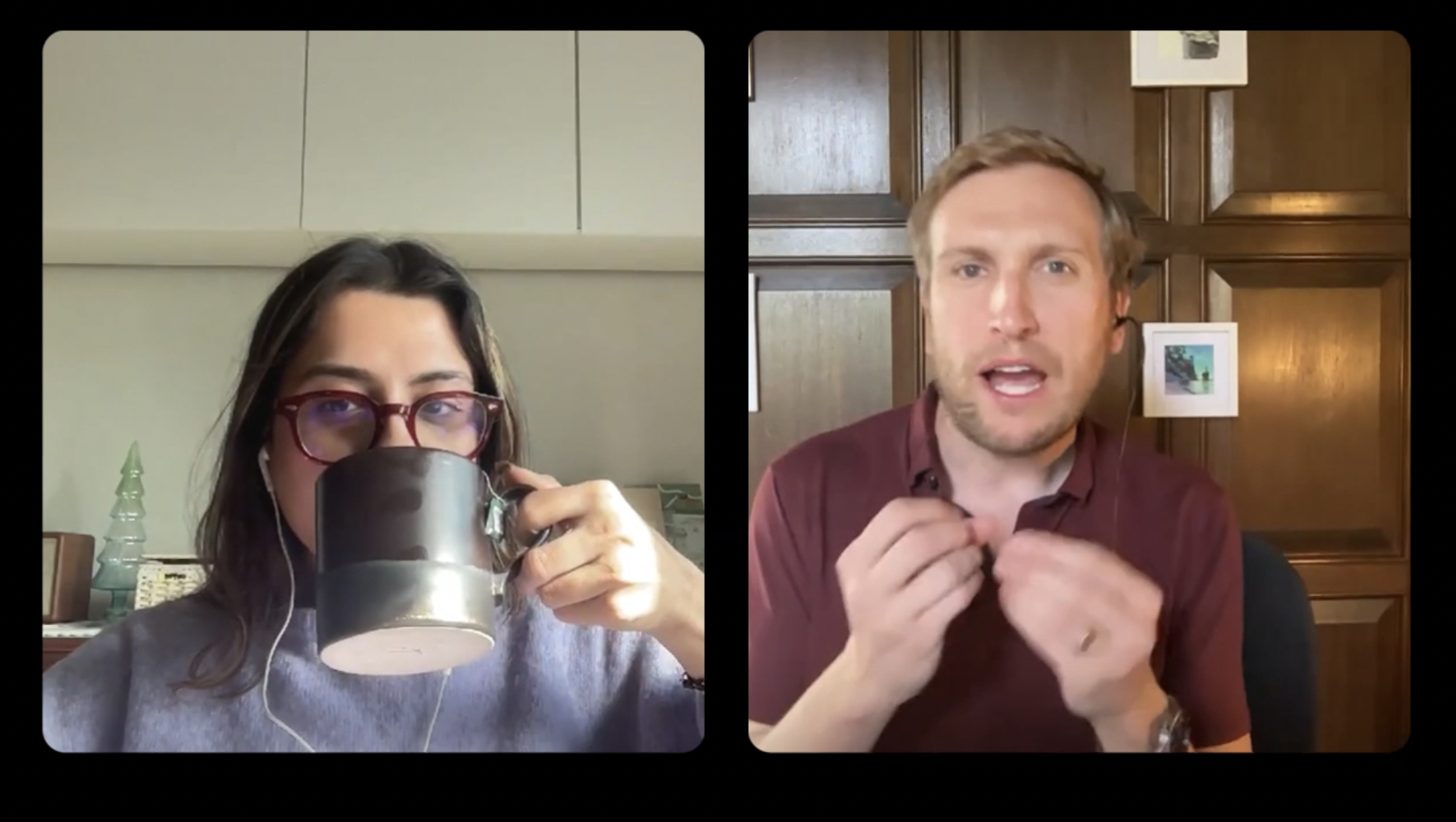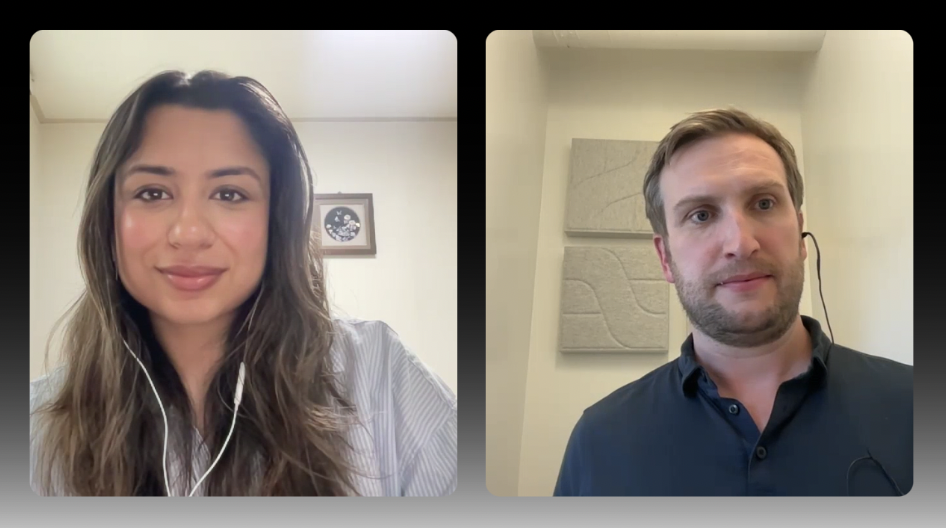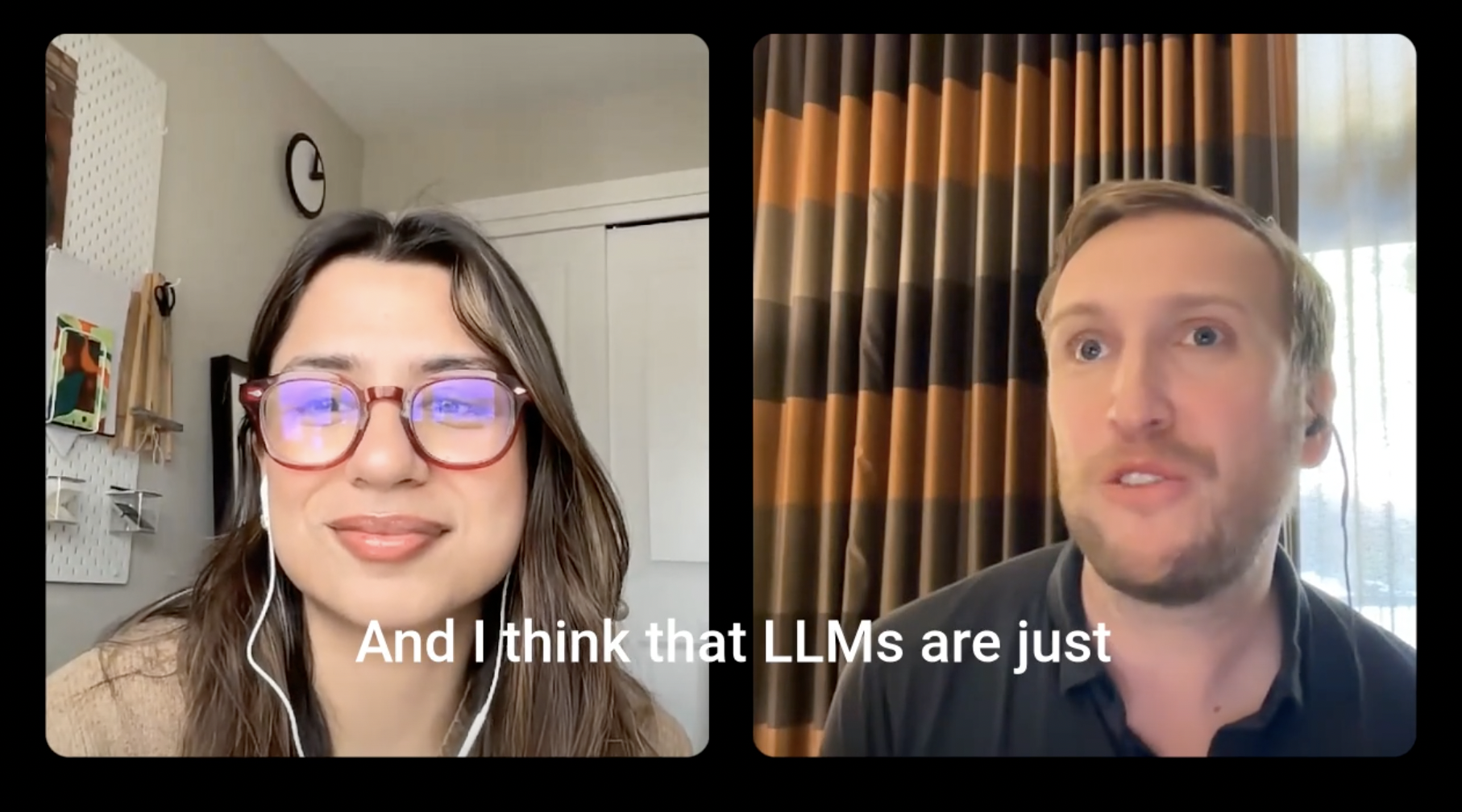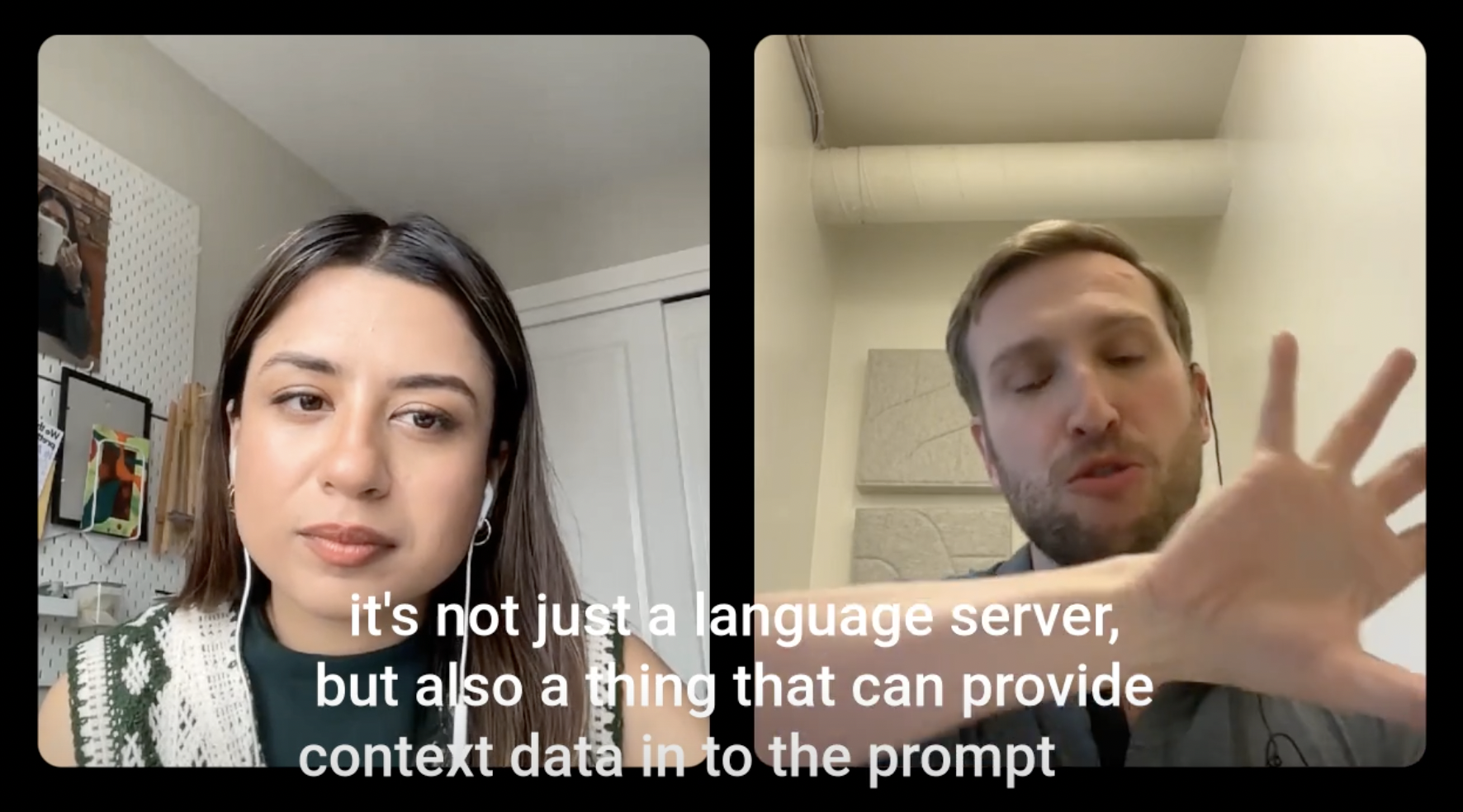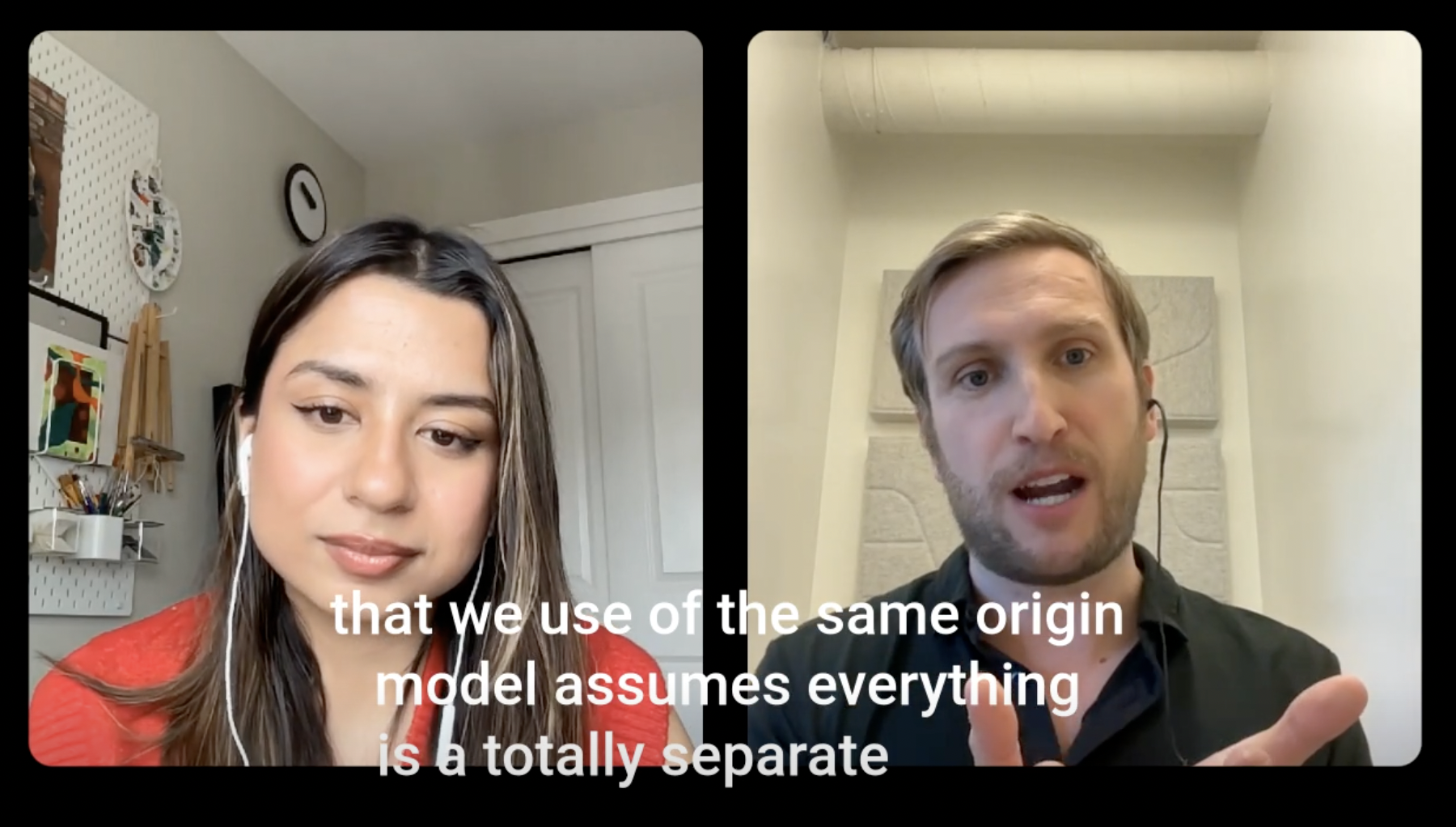common ground season 0
this experiment (season 0) has evolved into a weekly-sketch dialogue (a collaboration between analogue and common tools). the idea is that we need new infrastructure for thought. what’s emerged is part zine, part research method, part design ritual. we don’t really know. which is kind of the point.
--
week of 5/26/2025
AI as plumbing - Debate between AI as invisible infrastructure vs. getting hands dirty with messy implementation details
Open-endedness in ecosystems - How browsers created magic through unlimited linking possibilities, unlike closed systems
The Iron Triangle limitation - Can't have untrusted code, sensitive data, and network access simultaneously in current systems
Personal systems of record - Why we lack them and how they could become personal context engines
AI therapy concerns - Risks of surveillance, manipulation, and lack of human accountability in AI-powered therapy apps
LLM patience creating magic - How AI's ability to do infinite research work could enable powerful personalized assistance
Human-in-the-loop approach - Keeping humans involved in decision-making while AI handles research and options
Knowledge management dead ends - Why systems like Notion hit limits due to maintenance burden and lack of real-world connection
Activation energy as key metric - Lower barriers to action determine whether tools become useful or abandoned
App paradigm limitations - How current app models are inherently closed-ended compared to open web systems
week of 5/19/2025
Second and third order impacts of technology vs. first order optimization
Personal context engines vs. engagement-maximizing dossiers
Presence → Intuition → Noticing → Intention → Execution → Alignment feedback loop
Adaptive efficiency vs. optimization that breaks resilient systems
The steamroller metaphor - slow-moving problems that crush you by the time you notice
The apprenticeship evaporation problem and tacit knowledge transfer
Gall's Law: complex systems evolving from simpler working systems
Parasocial apprenticeships as the new model for skill acquisition
Simpson's paradox in AI adoption - individually rational, collectively destructive
Pro-social vs. anti-social AI relationships
week of 5/12/2025
Intentional technology as an extension of human agency that aligns with aspirations rather than shallow wants
The four requirements for intentional tech: human-aligned, privacy by default, pro-social, and open-ended
The connection between modern tech concerns and transcendentalist philosophy (Thoreau's "living deliberately")
"Chatbots are a feature, not a paradigm" - the limitations of chat for structured, long-lived tasks
Orchestration overload - the burden of maintaining multiple personal knowledge systems
Ambient Smart Environments (ASEs) as behavioral scaffolds that increase metacognition
Context vs. content distinction - treating context like undifferentiated content leads to inappropriate sharing
Personality differences in organization - organizing ahead of time vs. just-in-time organizing
Three types of innovation: informative, transformative, and formative
The "T-shaped" model of expertise forming fractal patterns when multiple domains interact
week of 5/5/2025
Coactive computing as "working jointly" - technology as a trusted extension of human agency
The distinction between alignment with intentions vs. engagement maxing
"Engagement maxing" as a gravity well that consumer businesses fall into
Shallow engagement vs. deep engagement that leads to growth and change
The "Coco Melon effect" - optimizing for constant attention at the expense of metacognition
Technology that helps humans become "more themselves" rather than more average
Intelligence as a "mass noun" - flowing like water or sand rather than being centralized
Chat interfaces as the wrong affordance for many tasks
Data-facing techniques vs. user-facing applications in AI systems
The problem of "context collapse" when a single memory system tries to handle multiple domains
The "dossier" problem - when AI systems maintain hidden information about users
The rich, nuanced understanding that comes from shared human experiences
Privacy concerns related to accidental embarrassment and context-appropriate information
The multiple perspectives of truth - "we contain multitudes" across different contexts
week of 4/28/2025
Private intelligence vs. AI - the importance of having AI on your terms and in your control
The ChatGPT account lockout problem - why digital homes need to be on "your turf"
Hidden AI memory features - concerns about undisclosed information AI systems maintain about users
LLMs raising teachers' expectations - opportunities to redefine education beyond just preventing cheating
The Zeigarnik effect - how offloading thinking to AI affects our tacit knowledge and intuition
Decentralization and centralization in adaptive tension - how they naturally coexist and balance each other
The "Iron Triangle" of security - untrusted code, network access, and sensitive data challenges
Convex vs. concave systems - why systems with human agents are inherently destabilizing
Socratic methods in education - potential for AI to promote growth mindset learning
Building diverse high-trust teams - importance of shared understanding across different perspectives
week of 4/21/2025
The relationship between algorithms and user wellbeing - 47% of Gen Z regret TikTok's invention, 50% regret Twitter's
Content vs. art - algorithms recommend content that centers users rather than challenging them
"Alienation from software" - users can't modify or fix the apps they rely on daily
The walled garden problem - Apple's ecosystem prevents running software outside the App Store
The "Coasian floor" - features below a certain economic threshold won't be implemented by companies
The power of lock-in - iMessage "blue bubbles" keeping users in Apple's ecosystem despite preferences
The concept of "infinite software" - moving beyond supply constraints to bespoke software on demand
The need for human-centered, pro-social software versus current aggregator models
"Meta apps" - clusters of customized mini-apps addressing personal use cases
Security threats co-evolving with ecosystems - systems only get targeted when valuable enough
The "Iron triangle" of security - choosing only two among untrusted code, sensitive data, and network access
How algorithmic content amplification increases polarization, even on non-political topics
week of 4/14/2025
The shift from "big tech" to "better tech" that considers societal implications
Chat as a feature, not the entire system - "LLM pixie dust" infused into normal UIs
Tools extending human agency vs. anthropomorphized entities
Human-centered design vs. AI-human interaction paradigms
Prompt injection as a fundamental problem for AI systems
"Apps are about isolation, not integration"
LLMs making generalists almost as good as specialists
Specialists reaching local maxima vs. generalists finding global maxima with "epistemic humility"
Enlightened technology embracing more than just the CS lens
The power to transcend paradigms as the most effective leverage point
The balance between acting and understanding in technology development
The Zeigarnik effect - having "tabs open" in your mind drives creative innovation
week of 4/7/2025
LLMs as "insecure interns" eager to please
Gullibility of agents and AI systems
The dangers of prompt injection
"Confused deputy" security problem with LLMs
Non-reversible downside risk of autonomous agents
The "eggs delivery" incident (accidental purchase)
Tools calling LLMs vs. LLMs calling tools
The problem of autonomous agents "YOLOing" into corners
"Don't use LLMs as software, use them to write software"
"Castles in the sky" - ideas easy to describe but impossible to build
MCP and its security challenges
"The S in MCP stands for security"
The "politician's fallacy" in tech AI strategy
Browser security model vs. LLM security model
"Load-bearing party trick" - apps without GDPR banners
Blue Sky's idealistic but pragmatic approach
The tension between idealism and mainstream adoption
The power and problems of algorithmic feeds
"Your algorithm is you" - the relationship with recommendation systems
The loss of gatekeepers and human curation
The value of DJs and editors who can surprise you
"Humans make connections algorithms can't"
The move from globalization to localization
The importance of tension and competing perspectives in media
Tech responsibility and indirect effects of technological choices
Using multiple lenses beyond computer science
week of 3/31/2025
Model Context Protocol (MCP) as an extension of Language Server Protocol
The N×M problem vs. fan-out problem in protocols
Security concerns with LLMs taking irreversible actions
Grease Monkey as a historical parallel to MCP (powerful but dangerous)
LLMs as "planetary scale consensus machines"
Technological ethnocentrism in AI development
Preferential attachment - "rich get richer" dynamics in technology
How React became dominant through preferential attachment
Social sifting processes and emergent qualities
Medical differential diagnosis as a method to find outliers
Finding disconfirming evidence vs. confirming evidence
The web as a medium vs. just a protocol
Aggregators' imperative to prevent traffic outflows
Commercial "town squares" vs. genuine public spaces
The challenges of automating important user tasks
Automation reliability thresholds and user trust
Primary vs. secondary use cases in product adoption
Tools for detecting serendipity and synchronicity
The need for niche, personalized automation tools
Semantic diffusion - how popular terms lose meaning
The tension between efficient homogeneity and adaptable diversity
week of 3/24/2025
Systems should have a mix of squishy and hard things
Squishy things allow adaptability, hard things allow dependability
LLMs are fundamentally more squishy than traditional programming
The moving bullseye metaphor for adaptability
Noise as the raw material for adaptability
Efficiency and adaptability are in tension
The world shifting from Physics Envy to Biology Envy
“Jailbreak your data”
Wikipedia as the lone public park in an internet of shopping malls
Trust conflict between advertising and personal assistants
Personal vs commercial software
The closer you look, the more convincing it becomes (definition of rigor)
The compounding domino model of human interaction
Every action with irreversible side effects must be initiated by humans
Tacit knowledge and ambient computing challenges
Prosocial software that's optimistic, human-centered, and collaborative
Data-first vs UI-first approaches
week of 3/17/2025
Documents being alive versus chats being mostly dead
Google Docs as multiplayer conversation spaces
Emergent social conventions in shared documents
The distinction between tools vs. apps
Hermetically sealed apps vs. general purpose tools
The "exoskeleton-horse-butler" spectrum of agency
Tools serving user agency vs. tools serving company goals
"Just right" tools that align with human aspirations
Vibe coding as fun but having a low ceiling
Vibe coding on personal data as a powerful unlock
App-based vs. data-centric security models
Information Flow Control for tracking sensitive data flows
Computers starting as "pianos" and becoming "CD players"
Participatory democracy requiring "mental muscle"
The decline of user agency in modern computing
The "runaway engine of human society" accelerating with technology
Evolutionary search through idea-space accelerating with technology
The tension between "what people want" vs. "what people want to want"
Algorithm optimization for engagement vs. human wellbeing
The Unix philosophy of small, composable tools
Combinatorial potential of small tools vs. monolithic applications
The mathematics of security enabling combinatorial software
week of 3/10/2025
Soulful computing
Software bending to humans vs. humans bending to software
"Oozification"
Software as primarily social, not technical
"Vibe coding"
Security model limitations
New security paradigms
"Pipes"
LLMs as "human-level reasoning at the speed of light"
The disappearance of file systems
Cozy digital spaces
Context collapse
Organization size and coordination costs
"Tyranny of the rocket equation" applied to organizations
Mechanistic emergence in digital ecosystems
Email as "our most precious data stream"
Trust and alignment in personal AI



